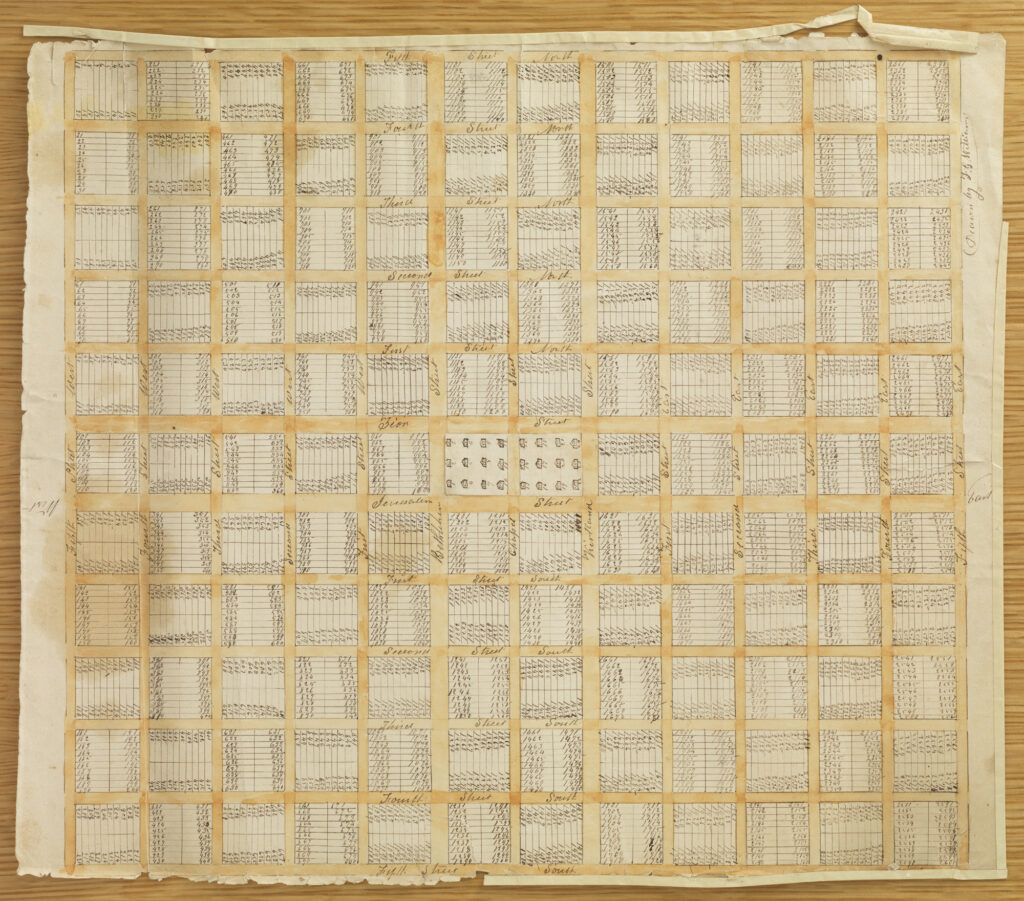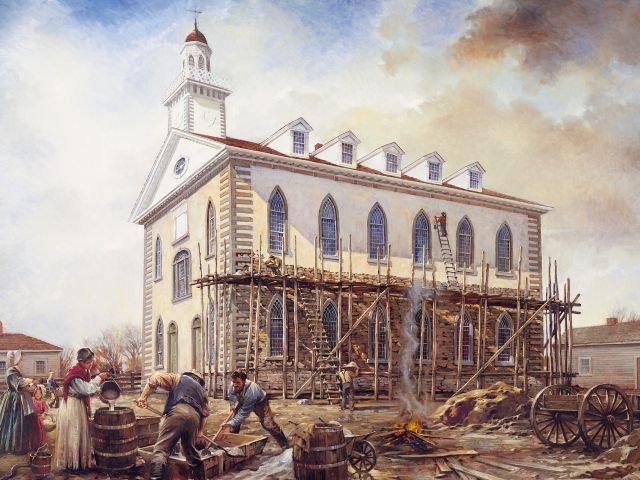To accompany your Come Follow Me study for September 1-7
In addition to reading this section you will want to read:
- Chapter 37: Doctrine and Covenants 94–97 (churchofjesuschrist.org)
- Joseph Smith’s Revelations, Doctrine and Covenants 94 (churchofjesuschrist.org)
- Joseph Smith’s Revelations, Doctrine and Covenants 95 (churchofjesuschrist.org)
- Joseph Smith’s Revelations, Doctrine and Covenants 96 (churchofjesuschrist.org)
- Joseph Smith’s Revelations, Doctrine and Covenants 97 (churchofjesuschrist.org)
- Saints, 1:169–70;
- “A House for Our God,” Revelations in Context, 165–73, at https://www.churchofjesuschrist.org/study/manual/revelations-in-context/a-house-for-our-god?lang=eng
- “A School and an Endowment,” Revelations in Context, at https://www.churchofjesuschrist.org/study/manual/revelations-in-context/a-school-and-an-endowment?lang=eng
- Gospel Topics, “Zion,” at https://www.churchofjesuschrist.org/study/manual/gospel-topics/zion?lang=eng
You may also enjoy the following video:
If you would like a Kahoot game related to these sections which you could use with your family or your class, or which you could play or learn from individually by converting it to a “Challenge” version, click here: https://create.kahoot.it/share/doctrine-and-covenants-94-97/0a6be482-a642-430e-9029-6f6a5ebb764c. To use it with a group, after clicking on this link, you will need to log into Kahoot, creating a free account if you have not done so previously, then click on the blue “Host Live” button or the gray “Assign” button, depending on how you wish to use the Kahoot. Some of the Kahoot questions may presuppose that the player has read through the suggested answers to the following Points to Ponder and at least has browsed the Institute student manual as well.
Points to Ponder in Doctrine and Covenants 94-97
1. Three times in D&C 94 the Lord specifies that certain buildings are to be “dedicated” to him. What importance do you see in a dedication ceremony? What difference does it make if a chapel or temple is dedicated or not?
2. Why would the Lord consider a printing establishment to be as important as D&C 94 seems to indicate? Should equal prominence be given to service stations, beauty salons, and grocery stores?
3. What temporal benefits can you see in living in a city such as Joseph Smith envisioned the city of Zion to be?

4. What does the Lord mean in 95:1 that chastisement leads to forgiveness? How does that relate to Is. 53:5, which says “the chastisement of our peace was upon” the Savior, “and with his stripes we are healed”?
5. What synonym do you think would best convey what the Lord meant in 95:5 by the word “chosen”?
6. What does it mean to walk “in darkness at noonday”? (95:6)
7. Why would the Lord be so unhappy with the early saints in D&C 95 for not having built the Kirtland Temple yet, when it had only been 5 months since He had commanded it, they were only about 150 in number, were very poor, and had no experienced builders among them?
8. Which of the following do you consider the most likely explanation for the seeming gap between the promise of D&C 97:16 and our experience?
a. All the truly pure in heart have seen God but haven’t talked about it.
b. Most people haven’t been pure enough in heart yet to realize the fulfillment of this promise.
c. We have violated v. 15 by letting too many unclean things come into the temple, so the promise has become null and void.
d. The promise pertained only to the Kirtland Temple and was fulfilled in a marvelous outpouring of spiritual manifestations around the time of the temple dedication.
e. No time limit is put on the promise. There is no guarantee that we’ll see God on our first or on every visit to the temple, or even in this life. In fact, the verse doesn’t even say that the temple is the place where the pure in heart will see him.
f. To “see” God in this sense is not necessarily a visual experience in the normal sense but could be a spiritual feeling.
9. Why would we want Zion to be “very terrible” (97:18)? Wouldn’t it be better to be “very wonderful”?
10. Why would the Lord give instructions for the building of a temple in Jackson County, Missouri, on August 2, 1833, when He already knew, though Joseph Smith did not, that over a week earlier the Jackson County saints had been forced to sign an agreement to leave the county?
GIVE SECTION AND VERSE FOR EACH OF THE FOLLOWING IDEAS:
11. Neglect of temple work is a serious offense in the eyes of the Lord.
12. The Lord is very unhappy when we argue with each other.
13. Latter-day Saints should act differently from their non-member neighbors.
14. The Lord’s word is designed to tame the human heart.
15. It is important not only to be righteous but to have a spiritual witness that one’s level of righteousness is acceptable to the Lord.
16. Zion is more a condition than a location.
Possible Answers to Points to Ponder in Doctrine and Covenants 94-97
1. Three times in D&C 94 the Lord specifies that certain buildings are to be “dedicated” to him. What importance do you see in a dedication ceremony? What difference does it make if a chapel or temple is dedicated or not?
Probably the same difference it makes whether a baby is blessed or food is blessed. None are essential ordinances, but all are helpful. A dedication serves as an official and public acknowledgment that the building is the Lord’s and has been built for the Lord’s purposes. As such it can help remind those present of those sacred purposes and the importance of preserving the sanctity of the building and using it in the intended way.
2. Why would the Lord consider a printing establishment to be as important as D&C 94 seems to indicate? Should equal prominence be given to service stations, beauty salons, and grocery stores?
First of all, this was not just any printing business but the Church’s, for the dissemination of the scriptures and other Church literature. The Book of Mormon repeatedly shows the importance of the written word. It was worth more than Laban’s life, for example, and proved the difference between the cultural and religious superiority of the Nephites and the degeneracy of the Mulekites. While service stations, grocery stores, etc., certainly serve a useful function in society and provide honorable employment, they probably do not have the same direct and immediate spiritual importance as the intended Church printing enterprise would have had.
3. What temporal benefits can you see to living in a city such as Joseph Smith envisioned the city of Zion to be?
They would include:
- All would have the benefits of city life, with farms outside the city.
- All would have lots of equal size.
- The temple and other sacred buildings were at the very center of the city, easily accessible to all.
- All would be of one heart and one mind, with no poor among them.
- No crime nor contention.
- Wide streets, running north and south.
- No one’s house directly faced the front of another house.
4. What does the Lord mean in 95:1 that chastisement leads to forgiveness? How does that relate to Is. 53:5, which says “the chastisement of our peace was upon” the Savior, “and with his stripes we are healed”?
The Lord’s chastisement may lead us to repent and thus qualify for the blessings of the atonement, which are made possible by the far greater “chastisement” suffered by the Savior.
5. What synonym do you think would best convey what the Lord meant in 95:5 by the word “chosen”?
Perhaps “approved,” or “accepted.”
6. What does it mean to walk “in darkness at noonday”? (95:6)
To refuse to see with our spiritual eyes when the fullness of gospel light is so readily available.
7. Why would the Lord be so unhappy with the early saints in D&C 95 for not having built the Kirtland Temple yet, when it had only been 5 months since He had commanded it, they were only about 150 in number, were very poor, and had no experienced builders among them?
It was not their failure to finish the temple with which He was displeased with but contentions which had arisen among them (95:10) and their failure to consider the prospective blessings of the temple to be motivation enough to even seriously get started with plans for the temple. They had not yet learned the lesson of 1 Nephi 3:7 that the Lord gives no commandments without preparing the way for their fulfillment.
8. Which of the following do you consider the most likely explanation for the seeming gap between the promise of D&C 97:16 and our experience?
Your choice. I personally lean a little toward “e.”
9. Why would we want Zion to be “very terrible” (97:18)? Wouldn’t it be better to be “very wonderful”?
“Terrible” here means striking terror into the hearts of the wicked, who would oppose Zion. It is fully compatible with and indeed nearly synonymous with being “wonderful.”
10. Why would the Lord give instructions for the building of a temple in Jackson County, Missouri, on August 2, 1833, when He already knew, though Joseph Smith did not, that over a week earlier the Jackson County saints had been forced to sign an agreement to leave the county?
It was not necessary for the Lord to reveal information that the brethren could find out for themselves in the normal course of things, but it was important that they act at all times with the proper spirit according to the best information they had at the time. As they didn’t know that the building of that temple would necessarily be postponed for many decades, it was appropriate and important that they be giving serious thought to the building of the temple so they could be blessed or cursed according the seriousness with which they accepted that commandment.
GIVE SECTION AND VERSE FOR EACH OF THE FOLLOWING IDEAS:
11. Neglect of temple work is a serious offense in the eyes of the Lord.
95:3
12. The Lord is very unhappy when we argue with each other.
95:10
13. Latter-day Saints should act differently from their non-member neighbors.
95:13
14. The Lord’s word is designed to tame the human heart.
96:5
15. It is important not only to be righteous but to have a spiritual witness that one’s level of righteousness is acceptable to the Lord.
97:8
16. Zion is more a condition than a location.
97:21
